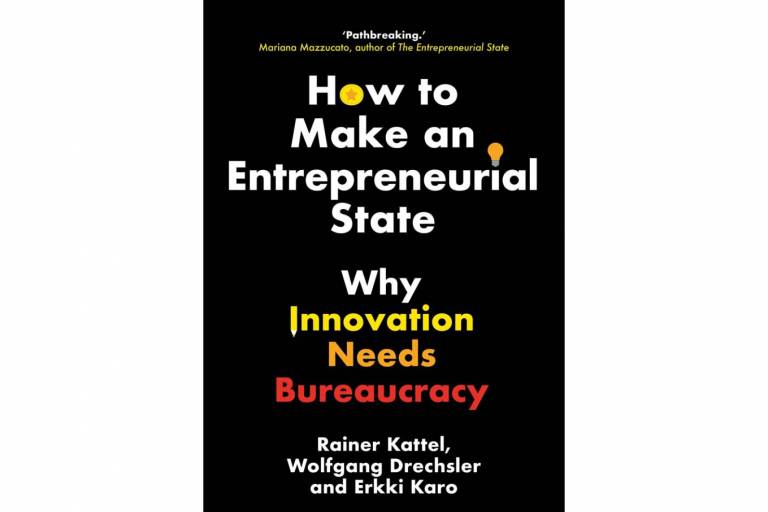Rainer Kattel’s new book explains why innovation needs bureaucracy
23 September 2022
How to Make an Entrepreneurial State, written by Rainer Kattel, Wolfgang Drechsler and TalTech’s Erkki Karo, described by IIPP Director Mariana Mazzucato as “pathbreaking”, provides multiple examples of states directly generating innovations across many societal economic sectors.

IIPP’s Deputy Director Rainer Kattel has just published a new book, How to Make an Entrepreneurial State: Why Innovation Needs Bureaucracy, written with IIPP Honorary Professor Wolfgang Drechsler and Erkki Karo, Head of Department at the Nurkse Department of Innovation and Governance at TalTech in Estonia.
The concept of the ‘entrepreneurial state’ – a state which invests public money in innovation, thereby becoming the primary financial risk-taker in new and untried technologies – is important to IIPP’s work. Institute Director Mariana Mazzucato wrote a book defining the concept and how it has led to the economic success of the US in 2013, called The Entrepreneurial State. In this new book, described as “pathbreaking” by Mariana herself, Rainer and his colleagues seek to show how the public sector must adapt and persevere to advance technology and innovation.
As governments around the world seek to meet climate targets and change the way we live, they are experimenting with new technologies, such as self-driving cars and smart energy grids. Innovation, and investment in innovation, is vital. Rainer, Wolfgang and Erkki look at how new innovation polices and how they are designed and implemented in their book, using examples from Europe, the US and Asia.
They say that governments need long-term policies and capacities to ensure stability for successful innovation, but also need to be able to be dynamic like start-ups to handle change and crises. The book explores the difficulties that public bodies face and show how they can overcome resistance for the good of all.
‘The book discusses issues at the very heart of IIPP – how should public organisations work in order to support inclusive and sustainable innovation,’ says Rainer.
Interestingly, the authors are a three-generation academic team – Wolfgang’s first PhD student was Rainer, and Rainer’s first PhD student was Erkki.
The book is available online from the publisher.
 Close
Close

